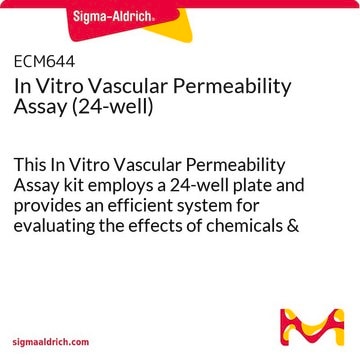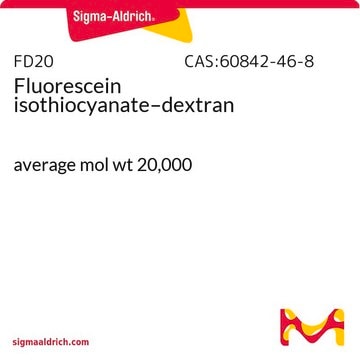53471
FITC-CM-Dextran
average mol wt 70,000
Synonym(s):
FITC-CM-Dextran 70, Fluorescein isothiocyanate–Carboxymethyl–Dextran
About This Item
Recommended Products
conjugate
FITC conjugate
form
powder or crystals
mol wt
average mol wt 70,000
composition
carboxymethyl content, 3-7%
extent of labeling
0.001-0.020 mol/mol FITC glucose
technique(s)
permeability assay: suitable
fluorescence
λex 493 nm; λem 517 nm±5 nm in 0.1 M Tris pH 8.0
Looking for similar products? Visit Product Comparison Guide
General description
Application
Storage Class Code
11 - Combustible Solids
WGK
WGK 3
Flash Point(F)
Not applicable
Flash Point(C)
Not applicable
Certificates of Analysis (COA)
Search for Certificates of Analysis (COA) by entering the products Lot/Batch Number. Lot and Batch Numbers can be found on a product’s label following the words ‘Lot’ or ‘Batch’.
Already Own This Product?
Find documentation for the products that you have recently purchased in the Document Library.
Customers Also Viewed
Articles
Explore FITC-labelled polysaccharides and their properties, including impact of molecular weight on molecule dimensions.
Explore FITC-labelled polysaccharides and their properties, including impact of molecular weight on molecule dimensions.
Explore FITC-labelled polysaccharides and their properties, including impact of molecular weight on molecule dimensions.
Explore FITC-labelled polysaccharides and their properties, including impact of molecular weight on molecule dimensions.
Our team of scientists has experience in all areas of research including Life Science, Material Science, Chemical Synthesis, Chromatography, Analytical and many others.
Contact Technical Service




